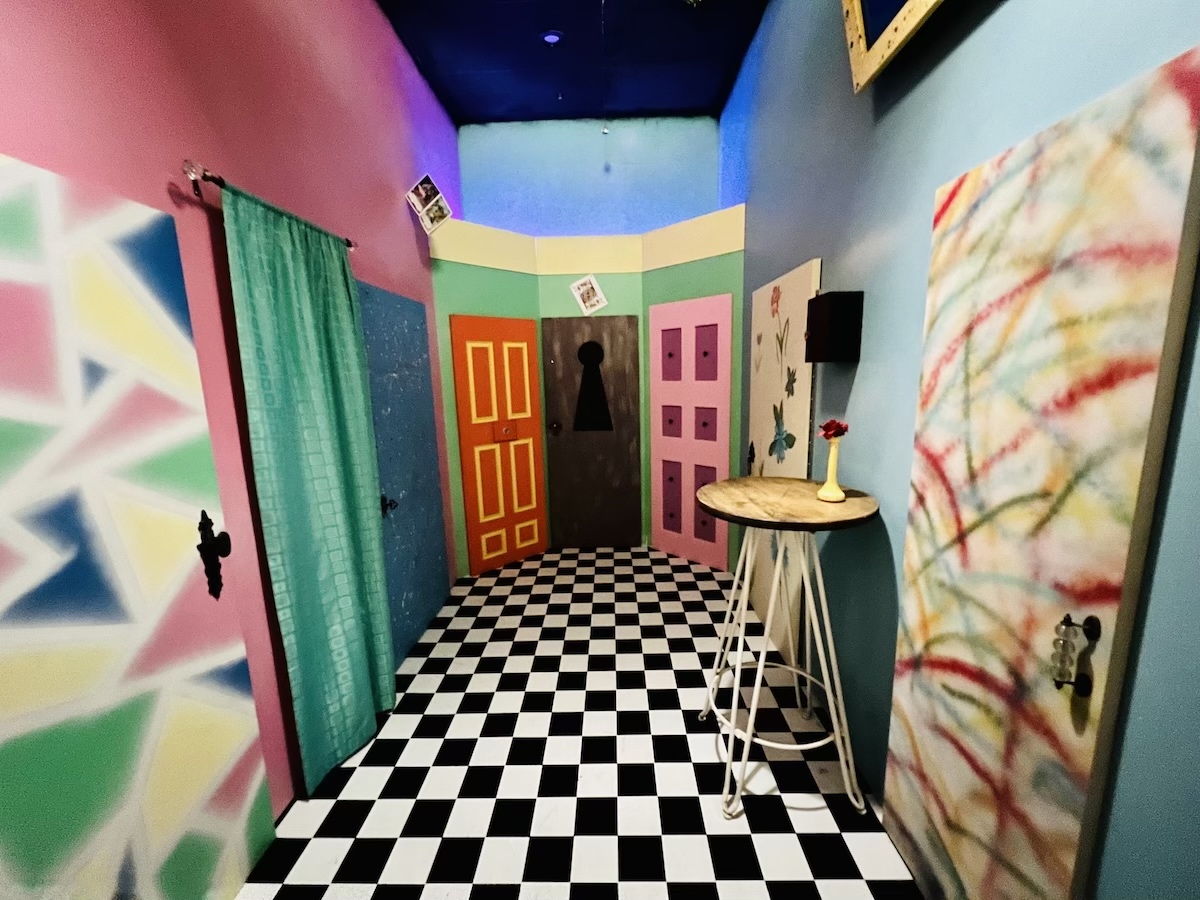Team Tasks at Minneapolis Escape Room-- Perfect for Friends and Family members
Team Tasks at Minneapolis Escape Room-- Perfect for Friends and Family members
Blog Article
Team Strategies: How to Collaborate Successfully in a Retreat Area
Groups need to actively pay attention to each member's understandings, assign functions that line up with individual staminas, and maintain routine check-ins to ensure emphasis and protect against redundancy. By promoting an environment that values communication and adaptability, groups can considerably enhance their efficiency and success prices.
Establish Clear Interaction

To assist in clear communication, it is crucial to assign a main point of contact for information dissemination. This duty includes summarizing searchings for and recommended methods to guarantee everyone remains on the same web page. In addition, adopting a methodical approach to conversations can prevent disorderly exchanges. For instance, quick, concentrated updates from each staff member can keep the group educated without overwhelming them with info.

Assign Duties Tactically
While clear communication establishes the foundation for effective team effort, appointing functions strategically makes certain that each staff member's staminas are made use of successfully. In an escape area situation, the time-sensitive and intricate nature of difficulties demands a well-organized strategy to job delegation. By identifying and leveraging specific competencies, groups can optimize their analytical capabilities and improve total performance.
First, examine the special skills and characteristics of each participant. For instance, a person with an eager eye for information might master finding covert things, while a sensible thinker might be much better fit to resolving problems - best escape room. It's equally crucial to have a leader that can look after development, handle the timeline, and make crucial telephone calls when necessary. This role usually calls for strong organizational and interpersonal skills.
Second, make sure that functions are versatile and versatile. As brand-new difficulties arise, the group has to have the ability to pivot, reapportioning jobs as required. This adaptability helps maintain energy and prevents bottlenecks that might happen because of rigid role jobs.
Inevitably, a tactical strategy to duty job not just takes full advantage of the staminas of each team participant yet likewise promotes a cohesive environment, driving the group in the direction of a successful escape.
Make Use Of Diverse Abilities
Acknowledging and utilizing the varied Read Full Report skills within your group can dramatically raise your performance in a retreat room. Each staff member brings special strengths to the table, and properly leveraging these capabilities can quicken analytical and boost overall performance. As an example, a staff member with solid logical skills could stand out at analyzing complex codes or patterns, while one more with eager empirical abilities might quickly identify hidden ideas that others may overlook.
Effective interaction is key to making use of these diverse skills. Urge employee to articulate their insights and concepts without delay, making sure that all potential options are taken into consideration. This comprehensive method cultivates a dynamic environment where imagination and crucial thinking can grow. Furthermore, appointing tasks that align with each member's strengths can avoid bottlenecks and make sure that development is continual.
Additionally, variety in skills commonly equates to diversity in thinking designs, which is very useful in a retreat area setting. While some challenges might call for rational reasoning and accuracy, others could take advantage of imaginative and side reasoning. By acknowledging and leveraging this variety, groups can resolve a broader array of difficulties better, thus enhancing their chances of an effective getaway.
Manage Time Effectively

First, allocate first mins for a fast study of the space. Determine visible puzzles and divide jobs based upon group participants' staminas, guaranteeing that nobody is idle. Establish interior time checkpoints to examine development occasionally; as an example, purpose to have half the challenges fixed by the mid-point of the game. This technique can aid keep the team find concentrated and stop time from slipping away unnoticed.
Furthermore, avoid passage vision. If a problem is taking also long, turn staff member or move on to check another obstacle, returning later on with fresh viewpoints. Interaction is paramount-- keep everyone upgraded on solved puzzles and remaining jobs to prevent repetitive initiatives.
Last but not least, utilize any hints or ideas sparingly however purposefully - best escape room. Knowing when to request assistance can conserve beneficial time. By sticking to these time management principles, teams can significantly boost their possibilities of an effective and satisfying escape room experience
Debrief and Show
Reflection is a vital facet of group development and renovation in the context of retreat areas. When the challenge is finished, whether effectively or not, it is vital for the team to take part in a structured debriefing session. This process enables staff member to examine their performance, identify staminas, and pinpoint locations for renovation.
Begin the debrief by reviewing what worked out. Highlight details instances of efficient interaction, analytic, and partnership. Identifying these favorable behaviors reinforces them and urges their repeating in future obstacles.
Next, resolve the challenges came across. Review moments of confusion, miscommunication, or inadequate techniques. Encourage an open and positive dialogue where employee can share their perspectives without concern of criticism. This fosters a society of constant enhancement and discovering.
Conclusion
In verdict, successful partnership in a getaway room is predicated upon clear interaction, calculated duty jobs, the efficient application of varied abilities, and proficient time administration. Routine check-ins and organized debriefings are important for keeping focus and fostering constant improvement. By creating a cohesive and flexible group environment, the chance of efficiently solving puzzles and attaining the goal of escaping the area is considerably improved. This technique not just makes certain success however also advertises collective development and learning.
Report this page